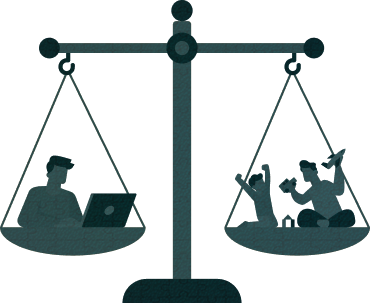Having a habit to save from an early age not only helps individuals to achieve financial stability but also enables them to confidently make decisions about what to do with the money they earn. Often, when we talk about achieving financial freedom and stability, it is implied that one needs to live frugally and save as much as one can. But the truth is that in order to achieve financial stability and maintain a lifestyle, one does not need to necessarily live stingily.
We all are already aware of several well-known practices such as maintaining a budget, having an emergency fund, investing in the right and safe assets, paying off debt, and limiting credit exposure. These practices are useful to monitor your spending and keep you out of trouble. But how can we use these practices to live freely while also saving enough to maintain the same or better lifestyle for years to come?
Here are some practices and ways in which you can find the balance between financial stability for today and tomorrow:-
- Budgeting for Fun
In your monthly budget, once you have accounted for all the necessities and kept an amount aside for saving, then separate a certain amount for things you like to do. Consider this to be your monthly budget for having fun. You can use this amount to buy novels (if you are a reader), attend music concerts, spend on trying different cuisines, or attend a dance class.
When you budget for fun, it creates a psychological effect where there is a positive connotation attached to spending on things you like, instead of feeling guilty about it. Plus instead of being unaware of how much you spend, you would have a monthly leeway, hence you’ll feel secure while spending and at the same time not overspend.
2.Separating Needs and Wants
It is very important to understand the difference between needs and wants, as this helps you to spend wisely. One more important thing is that when we say needs it is not just about owning a house, having food, and fuel to commute to the office. To survive happily, interacting with people, being close to nature, and having hobbies is equally important.
Hence the money you spend on meeting friends, travelling to be close to nature, and pursuing your hobbies should be accounted for and should be considered as needs. But it is important that you are able to objectively label what is a requirement for your well-being and what is simply a desire. When you put money to maintain/ better your well-being (and not just your standard of living/ status in society) you invest in yourself which will bear you fruits in the form of better health and higher efficiency.
3.Keeping Lifestyle Inflation in Check
As you grow professionally, your income will rise too and so will your want to up your lifestyle. Increasing the amount you spend on everyday things to get better quality is a good idea until and unless it does not translate into wasteful expenditure or spending on items that do not add any real value to your life. As you up your lifestyle, it is important to simultaneously gain skills and do more for your personal development, as this will help you to avoid stagnancy in your career.
Further, as your income rises it is necessary you increase the amount you save and invest proportionately, and then budget out for having fun or living out a more lavish life than previously.
Having financial stability and enjoying your life do not have to be in contrast with each other. The only thing you need to understand is what betters your well-being and how you can manage the money that needs to be spent while also saving for your future. Finding the right balance of spending and saving is how one can achieve the highest satisfaction from the income he/she earns.











